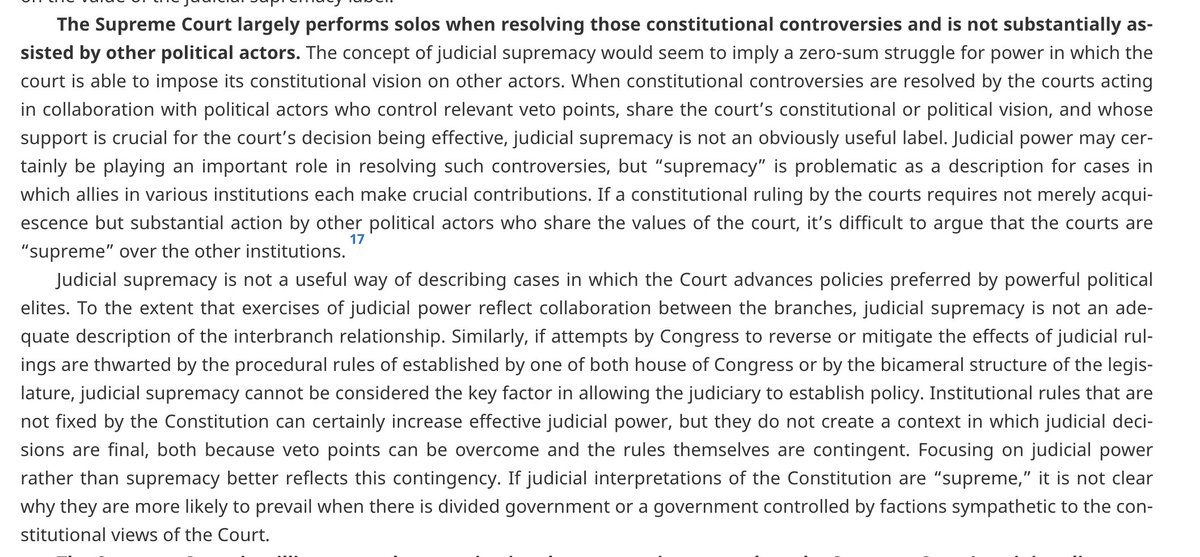Excellent piece by @jbouie on judicial supremacy: https://www.nytimes.com/2020/09/22/opinion/down-with-judicial-supremacy.html?action=click&module=Opinion&pgtype=Homepage">https://www.nytimes.com/2020/09/2...
I am obliged to add that in addition to being normatively undesirable, "judicial supremacy" is not an accurate description of the dynamics of American constitutionalism. https://www.cambridge.org/core/journals/perspectives-on-politics/article/judicial-supremacy-judicial-power-and-the-finality-of-constitutional-rulings/D3EDFCDBAC9AF88AC38E4BEDE32643C2">https://www.cambridge.org/core/jour...
The establishment and contestation of constitutional understandings has never been limited to the courts.
The Supreme Court cannot perform solos. It requires the assent or at least acquiesce of the political actors that have the guns and money, and every time it& #39;s tried to impose itself on a strong governing coalition it& #39;s had to back down.
An important related point is that judicial review was not "established" by Marbury v. Madison, which was a capitulation in the fact of executive authority. The modern form of judicial review was established with the strong support of Congress in the late 19th century.
The only other case of judicial review against a coordinate branch before the civil war involved holding that an already-repealed law was unconstitutional. The decision was treated as a dead letter by the next president and overruled by two constitutional amendments.

 Read on Twitter
Read on Twitter




